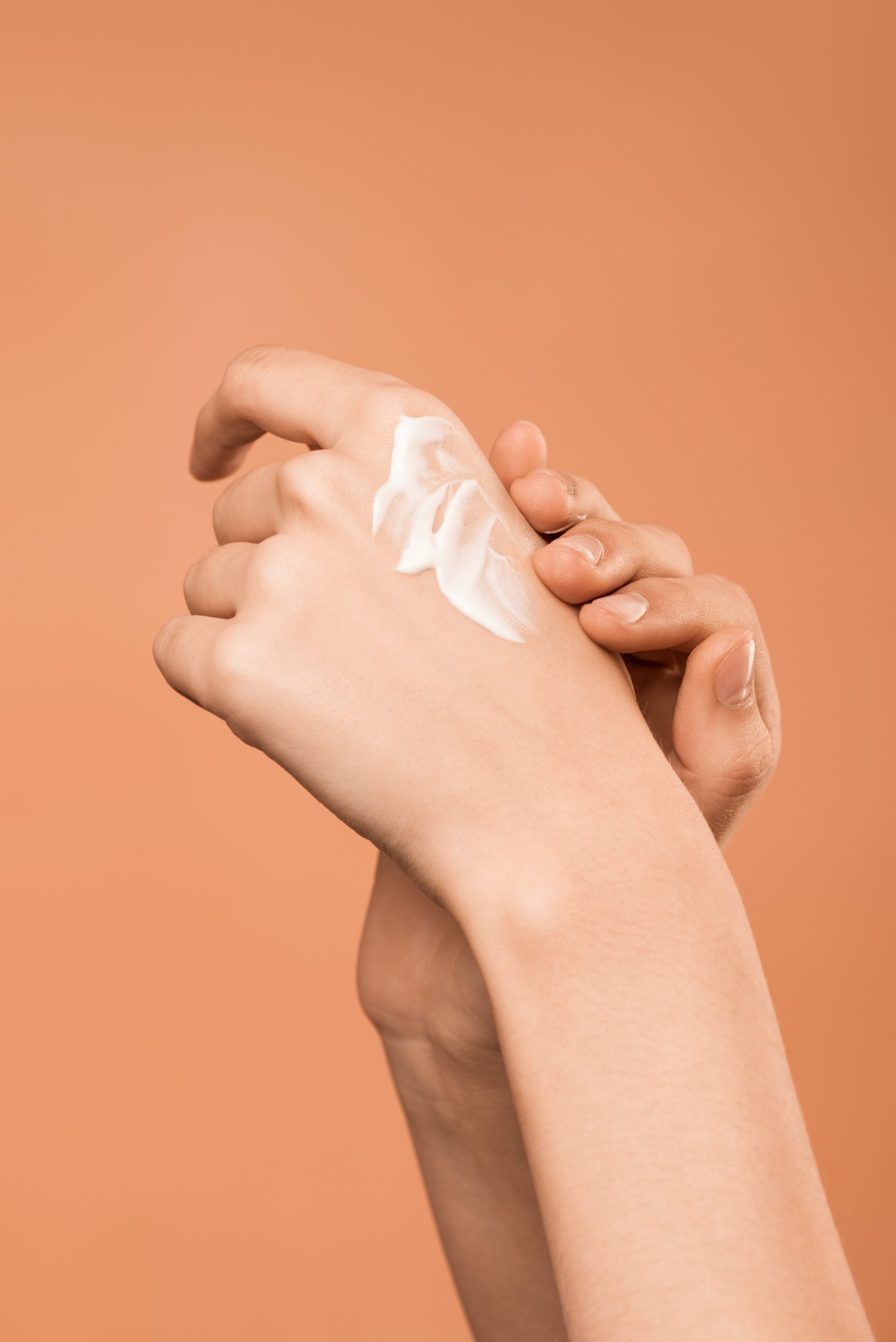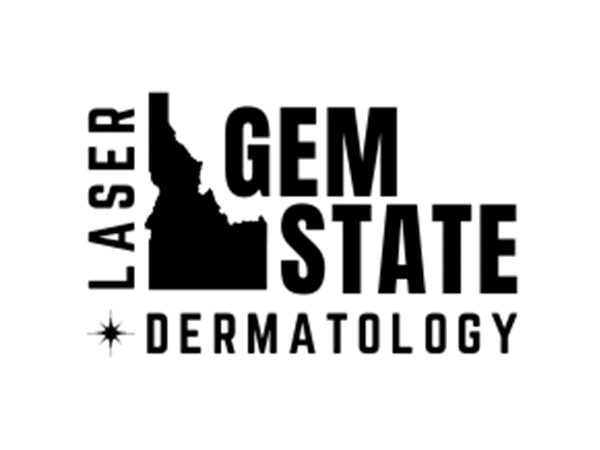
Dermatitis and Dry Skin
1. Limit bathing to every other day using warm, not hot, water. Except for the genital and underarm area, washcloths should not be used due to their abrasiveness.
2. Avoid using soaps except in areas where they are needed such as body folds. Use only a gentle soap such as Dove, Oil of Olay, Oiltum, Alpha Keri, Neutrogena, Purpose, Basis or a non-soap cleansing agent such as Aveeno or Emulave. Liquid cleansing washes are also acceptable such as Moisturel, Neutrogena or Dove. All cleansers and soaps are drying to sensitive skin so using the minimal amount is important.
3. Gently pat away excess water and immediately apply a moisturizer or the skin medications prescribed for you onto your damp skin. This will seal in the water and make the skin less dry and itchy. Generally, medicated ointment should be applied to problem areas first, then an over the counter moisturizer can be applied.
4. Acceptable fragrance-free moisturizers include CeraVe, Cetaphil, Eucerin, Aquaphor, AmLactin, or Vanicream. Creams or Ointments are preferred over lotions. Use them throughout the day whenever the skin feels dry or itchy and after getting your skin wet.
5. Wash all new clothes before wearing them to remove formaldehyde and other chemicals.
6. Residual laundry detergent in clothing may be irritating. While changing to a milder detergent may help, more often adding a second rinse cycle to ensure removal of soap is better. Avoid fabric softeners in the dryer.
7. Wear garments that allow air to pass freely to your skin. Open weave, loose fitting, cotton blend clothing may be most suitable.
8. Work and sleep in comfortable surroundings with fairly constant temperature and humidity.
9. Appropriate use of sedating and/or non-sedating oral antihistamines may reduce itching to some degree.
10. Use sun protective clothing and/or sunscreen on a regular basis and avoid sunburns.
11. Residual chlorine or bromine on the skin after swimming in a pool or hot tub may be irritating. After using a hot tub or swimming, immediately shower or bathe and apply an appropriate moisturizer.
12. Minimize stress anxiety, anger and frustration are commonly experienced by patients with atopic dermatitis and can provoke itching.
13. Avoid scratching, it always worsens things. Keep your nails trimmed short.
REDUCE SKIN IRRITATION & AVOID ALLERGENS THAT PROVOKE DERMATITIS
Consult with your physician at the first sign of any flaring of your skin. Remember that each patient requires individualized therapy and what works for another person may not work for you. If you have any questions or concerns, please do not hesitate to call our office.
DRY FEET TREATMENT FOR CRACKING SOLES
1. Apply an over the counter topical antifungal such as Clotrimazole cream twice daily for 2 weeks. After the 2 weeks of antifungal application is completed, you will switch to a cream that fights the thick scale. Examples include Carmol 20, Salex, Urea, CeraVe SA or AmLactin cream. These creams also work best when applied twice daily.
2. Continue to apply antifungal cream all over your feet (including in between your toes) once a week to prevent any fungus from recurring, and use the Salex (or similar cream) as needed to control the cracking. If you have any other questions or concerns, please do not hesitate to call our office.
HAND PROTECTION FOR HAND DERMATITIS
Hand dermatitis (hand eczema) is a common problem. Hand rashes usually result from a combination of (1) sensitive skin and (2) irritation or allergy from materials touched. Everyone’s hands routinely touch irritating soaps and detergents several times a day. Add the raw foods, solvents, paints, oils, greases, acids, glues, perfumes, cosmetics and so on that most of us touch at work or in the home and you can see that the skin of your hands takes a beating. Not everyone gets hand dermatitis. Many lucky people have “tough” skin, but unfortunately some of us have skin that is easily irritated and damaged. The result is dermatitis. People with hand dermatitis often have eczema elsewhere and frequently have relatives with similar skin conditions. We cannot toughen your skin but we have effective therapies to help treat your dermatitis.
Skin protection is an important part of treatment. The extent to which you need to follow these measures depends on the severity of your hand dermatitis. Protect your hands from direct contact with soaps, detergents, scouring powders and other irritating chemicals by wearing waterproof, heavy-duty, vinyl gloves which are generally better than rubber gloves because you may become allergic to rubber. Heavy-duty, vinyl gloves are usually available at paint and hardware stores. Buy 4-5 pairs so they can be conveniently located in the kitchen, bathroom and laundry areas. You should have enough pairs of waterproof gloves so that the insides of the gloves can dry between uses. If a glove develops a hole, discard it immediately! Wearing a glove with a hole is worse than wearing no glove at all. The waterproof, heavy-duty, vinyl gloves may be lined or unlined. If you use unlined gloves you should wear cotton gloves underneath them to prevent irritation from sweat. Wear waterproof gloves while peeling and squeezing lemons, oranges or grapefruit, peeling potatoes and handling tomatoes. Wear leather or heavy-duty fabric gloves when doing dry work and gardening. Dirty your gloves—not your hands. If you keep house for your family, scatter a dozen pairs of cheap cotton gloves around your home and use them while doing dry housework. When they get dirty, put them in the washing machine.
Wash your gloves – not your hands. When you must wash your hands, minimize soap and immediately moisturize after washing (see below). In addition to protecting your skin, you must work to moisturize. A moisturizer should always be applied after your hands get wet. There are many suitable moisturizers available over-the-counter. In general, we recommend fragrance free moisturizer creams. Examples include CeraVe, AmLactin, Cetaphil, Lubriderm, Moisturel, Keri Lotion, and Nivea. When hands are severely dry and cracked, greasy ointments such as Vaseline Petroleum Jelly or Aquaphor are the most helpful. 100% cotton gloves can also be worn at night over the moisturizer to trap in the moisture. The prescription medications you were given should be used as directed. Do not overuse them. In general, they are to be used on the worst areas in a sparing fashion. Over use of steroid creams can cause thinning of the skin. Superglue or medicated glues can be applied to deep cracks or fissures as needed. Apply superglue with a toothpick to the fissures every few days. If you continue to have problems or continue to need large amounts of the medicated creams, make a follow-up appointment. If you have any other questions or concerns please do not hesitate to call our office.
Dry Skin Dos and Don’ts Skin
1. Use moisturizing soap (Dove, Oil of Olay, Lever 2000, etc.)
2. Limit soap to the body fold areas (under arms, under breasts, in the groin and in between the toes)
3. When you get out of the shower, pat dry. Do not rub dry.
4. Apply moisturizer liberally 3-5 minutes after bathing; prefer cream or ointment over lotions.
DO – THINGS THAT MOISTURIZE
1. Shower or bathe in warm water
2. Limit bathing time to 5 minutes per day
3. Towel dry after your bath or shower
4. Put on moisturizer right after bathing
5. Limit soap use; any soap will dry your skin
6. Sparingly use mild soap with moisturizer*
7. Read toiletry labels; avoid products with alcohol
8. Limit your skin cream to 1-2 products
9. Use a non-comedogenic moisturizer
10. Rinse off chlorine and salt water after swimming
11. Humidify your home in the winter (or all year if you live in a dry climate area)
12. Eat a balanced diet: fruit, vegetables, and fiber
13. Drink plenty of water
14. Put a water softener on your showerhead.
Please call our office if you have any questions or problems.
*Mild soaps include Cerave, Cetaphil, Dove, Oil of Olay, and Ivory.
DON’T – THINGS THAT DRY YOUR SKIN
1. Take hot showers or baths
2. Take long showers or baths
3. Towel vigorously or air dry after bathing/swimming
4. Leave the bathroom without moisturizing
5. Obsess about frequent and vigorous soap use. (Avoid using a wash cloth or loofah.)
6. Wash with pure or granular soap
7. Use astringents or alcohol-based products
8. Use too many creams or moisturizers
9. Use comedogenic moisturizer if you have acne
10. Forget to shower after swimming
11. Stay in dry air 24 hours a day
12. Forget about what you eat
13. Allow yourself to become dehydrated
We're Here Whenever You Need Us
Phone
Fax
(208) 424-5072
Open Hours
Mon - Fri: 7:30AM - 5:00PM
Address
Boise, ID 83706

